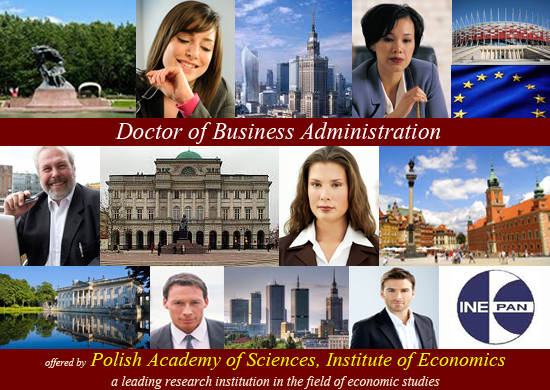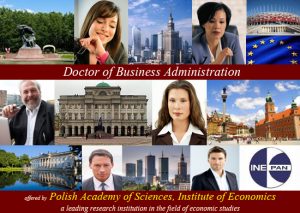- Marek Belka, President of the National Bank of Poland;
- Grzegorz Kolodko, former Deputy Prime-Minister and Minister of Finance of the Republic of Poland;
- Jerzy Osiatynski, Advisor to the President of Poland and former Minister of Finance;
- Jerzy Hausner, Member of the Monetary Policy Council at the National Bank of Poland;
- Kazimierz Laski, Senior Research Associate and former Director of Research at the Vienna Institute for International Economic Studies; and
- Zdzislaw Sadowski, Honorary President of the Polish Economic Society.
The EDBA Program is carried out in accordance with the regulations of the Ministry of Science and Higher Education in Poland and the EU Bologna Process.
The program consists of eight modules (two modules in each semester, four semesters during two academic years) and a research paper.
Upon finishing the EDBA Program (completing eight modules and presenting a research paper), the student receives the degree of Doctor of Business Administration.
A DBA certificate and a DBA diploma are issued by the Institute of Economics of the Polish Academy of Sciences.
For candidates who show inclination for in-depth scientific study and research there is a possibility of continuing for two extra years which results in writing (under supervision of a chosen professor) a PhD dissertation and defending it. Leading to a PhD in Economics.
Usually, candidates seek the certificate of completion of doctoral studies and the DBA degree without subsequent writing and defending of the PhD dissertation.
The EDBA Program has an edge over other similar program in that it nurtures, encourages and develops participants’ competences of problem-solving, cause-effect analysis, and strategic planning.
Graduates are proud to join international associations of DBA holders, and critically reflect upon their own business experience, but also enter a qualitatively new level of understanding of difficulties at their workplaces and have enough intellectual courageousness and acumen to see how these may be resolved.



